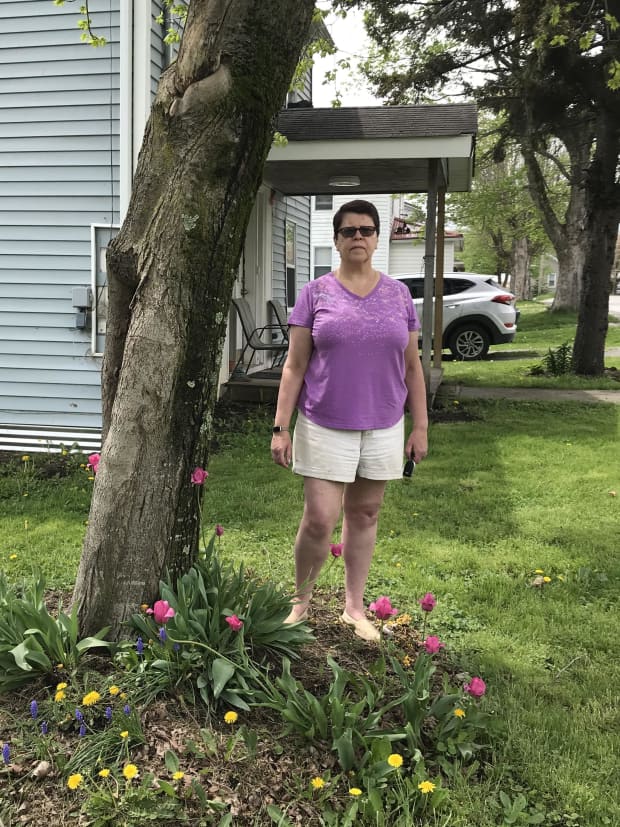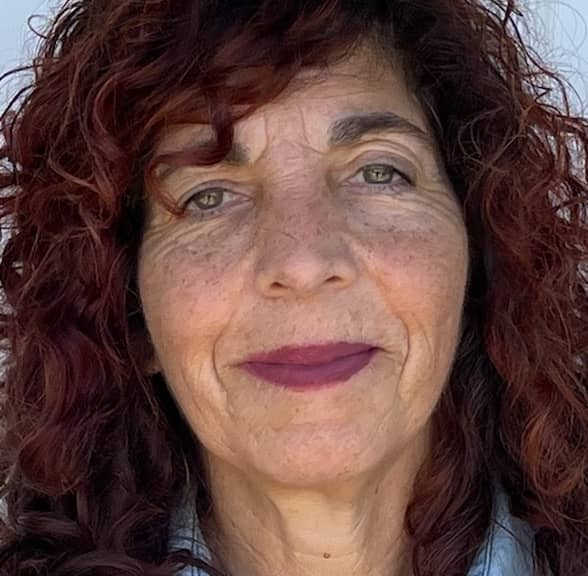‘I am so relieved’: People covered by Obamacare react to Supreme Court decision
Laurie Rozgonyi says she doesn’t have a lot of good luck.
Despite no family history of cervical cancer, Rozgonyi developed it years ago. A doctor’s initial 2003 diagnosis gave her a 50-50 shot at survival.
She’s been cancer free for 17 years, yet rounds of radiation and chemotherapy made it difficult for Rozgonyi, 64, to sit or stand for any more than a 20- to 30-minute span.
With that frame of mind, Rozgonyi was bracing for the U.S. Supreme Court to undo the Affordable Care Act “because I don’t have a good track record with good luck.”
Fortunately for Rozgonyi — one of approximately 31 million people receiving health care coverage through the sprawling statute known as Obamacare — that didn’t happen.
The Supreme Court on Thursday turned back the latest challenge to the law in a 7-2 vote.
When she heard about the ruling, the Mill Creek, W. Va. resident said, “I am so relieved, happiness, I can’t believe it. Maybe my luck is going to change now, which would be awesome.”

‘I am so relieved, happiness, I can’t believe it,’ Laurie Rozgonyi said. Photo courtesy Laurie Rozgonyi
Texas and 17 other Republican-leaning states argued the entire 2010 law was invalid because it included a fine — now $0 — for people who don’t have health insurance. The states lacked standing to argue the issue, the majority decision said.
The decision didn’t delve into the real-life consequences of the law falling, but Rozgonyi knew exactly what it could have meant for her: the potential disappearance of a health insurance plan she really likes and can pay for.
The Affordable Care Act of 2010 introduced several health care reforms, including exchanges, or marketplaces, where people purchase qualified health insurance plans.
That’s where Rozgonyi got her plan, using her Social Security money. The plan offers $15 monthly premiums, no co-pays for her primary doctor, $45 for specialists and a membership at a nearby YMCA where she can exercise to help her legs and back, according to Rozgonyi.
More than 11 million people were enrolled in ACA marketplace plans as of February, according to the U.S. Department of Health and Human Services. All told, approximately 31 million people now have coverage through the Affordable Care Act.
Rozgonyi hasn’t been able to work since 2005, due to her health. Without the Affordable Care Act, she’d likely have to go back to Medicare where, Rozgonyi said, the coverage isn’t as good.
“I was just hoping and praying that it wouldn’t happen,” Rozgonyi said of the chance the statute would fall.
While Rozgonyi hoping for the best, Monique Grajeda, of San Luis Obispo, Calif., was fearing for the worst in the lead-up to the decision.

‘It’s like a peace of mind. Relief,’ said Monique Grajeda, Photo courtesy Monique Grajeda
That fear and anger turned to happiness and relief when the 55-year-old self-employed residential architectural designer learned about the ruling.
“It’s like a peace of mind. Relief. Now I don’t have to fear if I get sick that, God, I’m going have to decide how sick I need to be before I go to the doctor,” she said.
Until Grajeda started getting coverage through California’s ACA-related exchange, she didn’t have health insurance. Sometimes in those days her bosses didn’t even have coverage for themselves.
So Grajeda had to guess when she was too ill to rough it out herself — like the time she finally brought herself to the hospital with a bad case of pneumonia.
Occurring just ahead of the time ACA became law, Grajeda’s day-and-a-half hospital stay resulted in an approximately $24,000 bill. She worked it out to an approximate payment in the $3,000 – $4,000 range and spent a couple years paying it off.
Through the years, Grajeda’s monthly premiums have ranged from $150 to $1 in her plans via the ACA exchanges. This year is the second time she is paying a $1 premium — a price, Grajeda emphasizes, she didn’t ask for, but was offered to her.
Though Grajeda declined to specify her income, she noted the premium amount is tied to her 2020 income, which was lower than in some other years. Financial feasts and famines can be a part of self-employment and 2020 was a tough year for her, like many others.
For example, after Grajeda spent precious hours and time designing plans for a restaurant’s addition, the pandemic forced the owner to close and lay off staff. The owner said he had no money to pay Grajeda.
Throughout that rocky time, Grajeda’s health insurance provided a financial backstop in her life. “It’s not broken. They need to just keep it,” she said.




